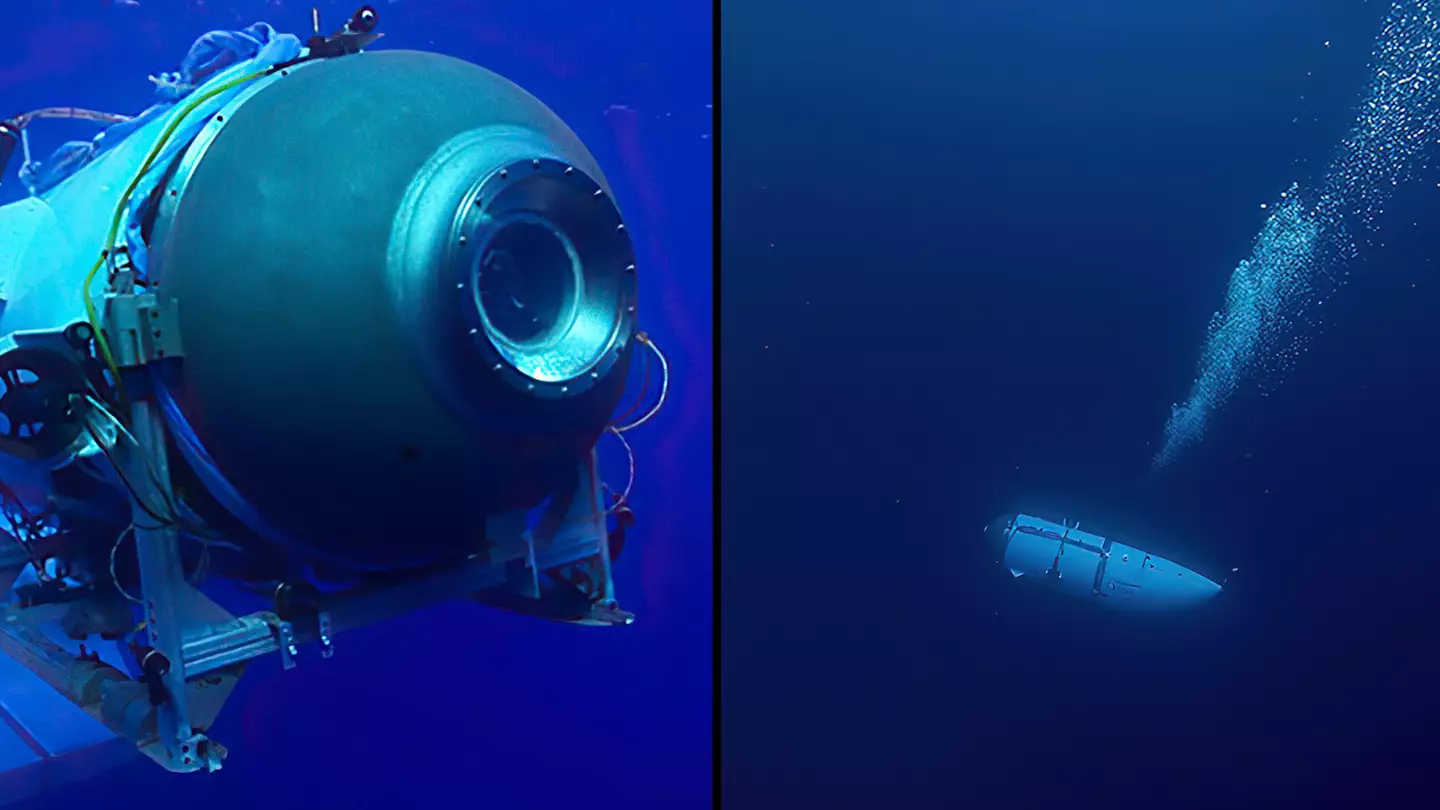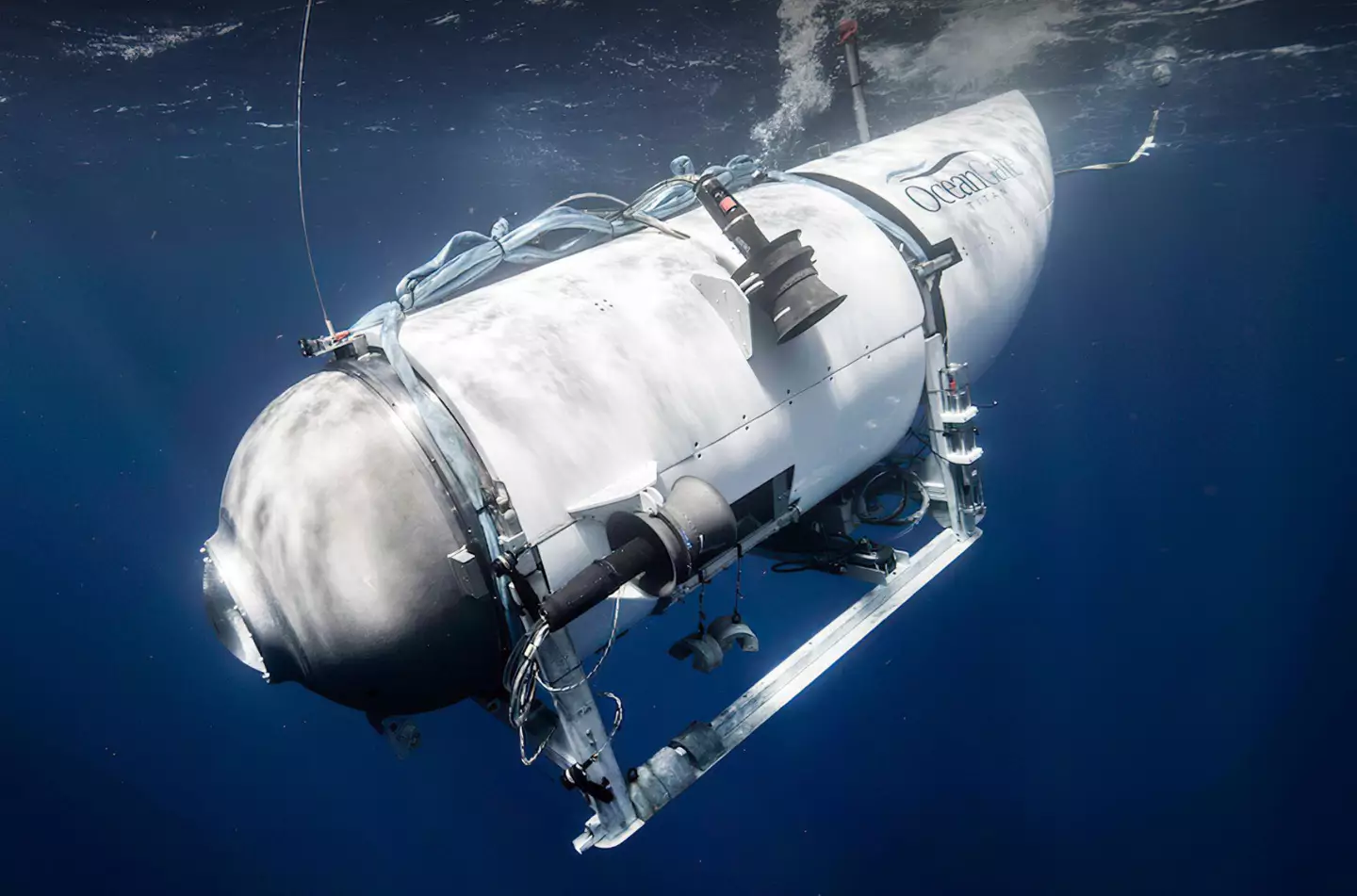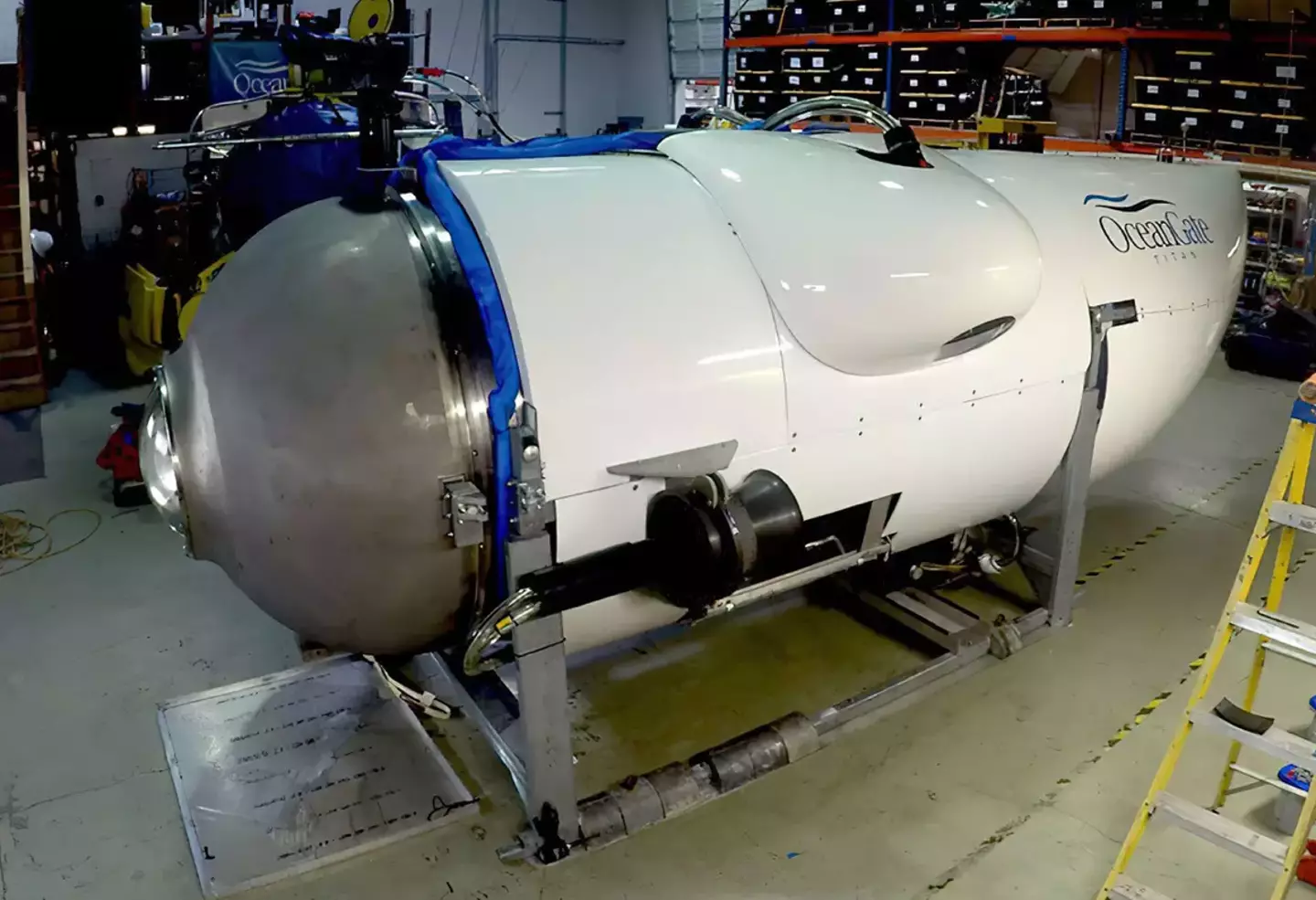
As the search for the missing submersible goes on, the hope for a good outcome dwindles every passing hour.
The last contact was made with Titan less than two hours after it set off for its Titanic voyage on Sunday (18 June), with search efforts taking place ever since.
While teams have pinpointed their search to a more specific area, the scale they are searching in is still massive.
In fact, the whole area where the searching is taking place is bigger than the whole country of Wales, which really does put it into perspective.
Advert
Alongside that, wreckage site sits on the ocean floor at a depth of around 12,500 feet (3,800 metres), making it difficult to access even with sophisticated technology.
Earlier today (22 June), US Coast Guard Captain Jamie Frederick predicted that oxygen has now run out on the submersible.

A US Coast Guard spokesperson said that the vital oxygen supply on board was predicted to run out at 7.08 am US Eastern time (12.08 pm BST).
Despite the bleak update for the stranded tourists on board - as well as their loved ones - officials have insisted that the operation is ‘100 percent’ still a search and rescue mission.
Advert
FOLLOW LIVE UPDATES ON THIS STORY HERE.
Earlier today, it was reported that an OceanGate co-founder believes that the time window 'is longer than most people think', which provided some hope.
Guillermo Sohnlein remains hopeful, too, telling Insider: "Today will be a critical day in this search and rescue mission, as the sub's life support supplies are starting to run low.”
He said the missing crew could make their oxygen last longer by remaining calm.
"I firmly believe that the time window available for their rescue is longer than what most people think. I continue to hold out hope for my friend and the rest of the crew."
Advert
Now, Dr Ken LeDez, a hyperbaric medicine expert at Memorial University in St John’s, Newfoundland, has provided further hope in an interview with the BBC.

"It depends on how cold they get and how effective they are at conserving oxygen," he said.
Dr LeDez added that running out of oxygen can take time - something than can become make or break based on temperature.
"It’s not like switching off a light, it’s like climbing a mountain – as the temperature gets colder and metabolism falls [it depends] how fast you ascend that mountain," he added.
Advert
The Dr went on to say that some passengers might survive longer than others, suggesting that 'distributing conversations' might have been had.
Topics: News, Titanic, World News